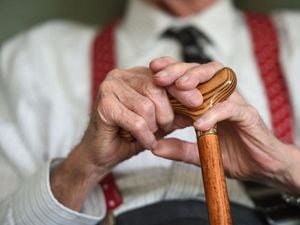Express & Star comment: Government integrate care homes into healthcare system
The Queen’s Speech was big on promises, but there was one prominent area again overlooked.

For too long, politicians of all political hues have promised to fix the nation’s broken social care system. The Conservative Government swept to power in 2019 thanks in no small part to the support from those here in our region. Prime Minister Boris Johnson promised both to level up and to create a long-term vision for sustainable social care. So far, the details are conspicuous only by their absence.
The social care system does not work. People who are vulnerable and elderly too frequently have to sell their home in order to fund care. The people who work in care frequently do so while between jobs; some are paid so poorly that they leave and decide to remain on state benefits. Providers of care manage to eke out a living, though not always.
The system is built on hurried appointments in people’s homes, on robbing Peter to pay Paul, on passing the buck so that another stakeholder picks up the bill.
We are sitting on a timebomb.
That timebomb is an ageing population that requires greater resources. In addition to higher pension payments, we must find ways to keep people in their own homes and to pay a sector that during the pandemic performed in the manner of a hero or heroine. Care sector workers made huge sacrifices for minimal pay in order to save lives and provide people with a reason to keep going. The Government must deliver on its promise to sort out this sector, rather than kick the ball into the long grass. Care home and the recipients of care visits all require urgent attention. There are significant issues, too, among those who leave hospitals and receive poor or very poor after-care.
Anyone who has had an elderly relative leave hospital will know the frustration of accessing the care they need and deserve. It is fragmented, complicated and difficult and adds to the stress of patients and their loved-ones.
The pandemic has shown the importance of care homes – now is the time to bring them into the fold and to make them part of an integrated system of healthcare.
Those who suffer domestic abuse are part of a living nightmare. It is an issue that the police alone are unable to tackle. Greater support is required across the spectrum so that men and women of all ages are able to find refuge and support, when none appears to be forthcoming.
TSB branches are stepping up to the plate by offering survivors safe spaces in TSB branches across the West Midlands. They deserve the warmest congratulation and support. Hopefully, their example will lead others to take part.
The more easily accessible help there is the better. A rise in domestic abuse is a sad symptom of lockdown and it is essential those who are victim to it feel they have somewhere. There must be support with stigma, an acknowledgement that while women are the chief victims some men also suffer, the tools for society to fix a problem that is simply unacceptable.
It requires a co-ordinated response from all sectors, where statutory bodies are supported by those in the private sector. Domestic abuse is a scourge that we must not tolerate and providing support for victims is a priority as we seek to fix it.





